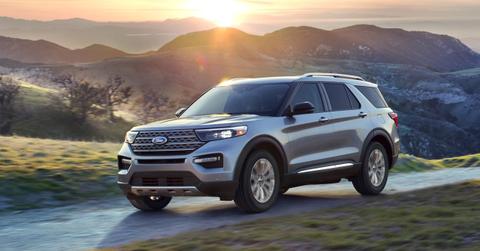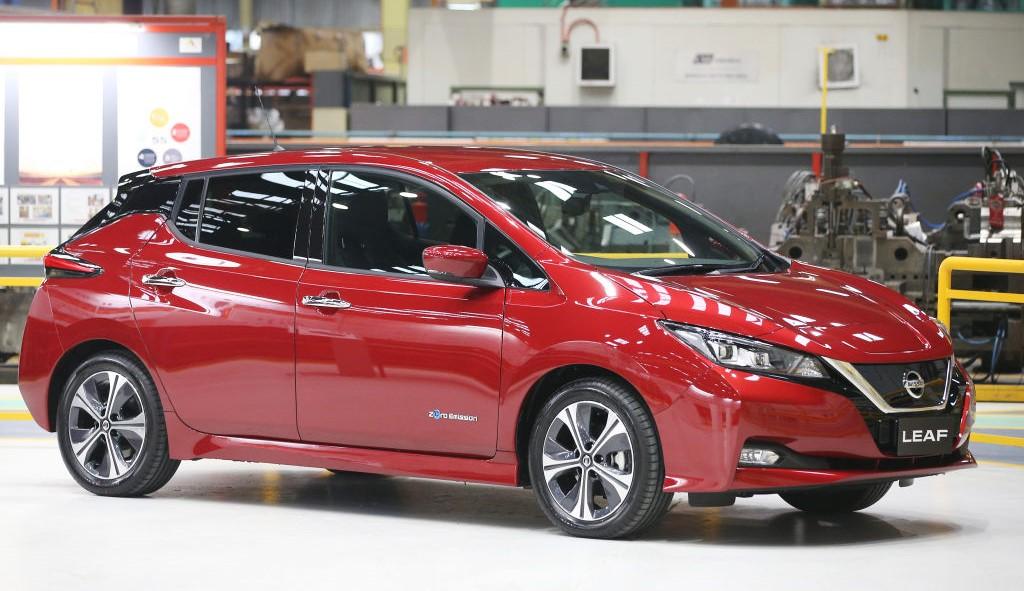Some Hybrids Are Eligible for the Revised $7,500 EV Tax Credit
The $7,500 tax credit is an attractive incentive, but is your hybrid vehicle you’re eyeing even eligible? See which EVs and hybrids are eligible.
Oct. 17 2022, Published 12:48 p.m. ET

The electric vehicle (EV) tax credit isn't a secret — it first launched in 2008, but phased out over the years as carmakers exceeded the cap on vehicles sold (the law originally stated once you sell 200,000 vehicles eligible for the EV tax credit, it’s game over).
Now, President Biden has restored the tax credit without that threshold as part of the Inflation Reduction Act (IRA).
There are certain stipulations where vehicles are eligible for the EV tax credit, so is your hybrid or plug-in hybrid vehicle eligible?
If you own or are eyeing a hybrid vehicle, it's important to find out if the vehicle qualifies for the incentive.
The newly restored EV tax credit does include some hybrid vehicles.
Starting on Jan. 1, 2023, people who purchase eligible electric vehicles can receive $2,500 to $7,500 in tax credits. The value of the credit can be directly subtracted from the purchase price of your vehicle at the dealership due to a tax credit transfer.
Both new and used vehicles are eligible and there isn't a cap for manufacturers on the number of eligible vehicles sold. Only vehicles below $55,000 for sedans and below $80,000 for vans, trucks, and SUVs are eligible for the credit.
Meanwhile, the income cap for the credit is $150,000 for single filers, $300,000 for married couples filing jointly, and $225,000 for heads of the household.
There's an important caveat to be aware of: The EV tax credit program prioritizes vehicles manufactured in North America or those with parts sourced in the region (if you only meet one of these requirements, you lose half the credit’s value).
Only a few manufacturers actually qualify, including Ford, Chevrolet, Jeep, Nissan, Lincoln, Lucid, Rivian, and potentially more (see the list on the U.S. Department of Energy’s Alternative Fuels Data Center website).
What types of hybrid vehicles are eligible for the EV tax credit?
Sometimes, it can feel like fully electric cars get all the attention. However, the new EV incentives also allow tax credits for plug-in hybrid vehicles over certain minimum battery capacity requirements.
The previous EV tax credit terms required the vehicle to maintain a battery capacity of at least five kilowatt-hours, meaning many plug-in hybrid vehicles were eligible. A change for this has not been addressed, so experts are operating on the premise it hasn’t changed.
Additionally, fuel cell vehicles powered by hydrogen are likely eligible for a tax credit. Both plug-in hybrid and fuel-cell vehicles may receive a lower tax credit valuation than fully electric vehicles. Used cars also receive a lower tax credit.
Talk to your dealership to take advantage of the EV tax credit.
Whether you’re buying an EV, hybrid, or hydrogen-powered vehicle, you can speak with a salesperson at your local dealership to find out exactly how much money you can get off the sticker price of a vehicle (for new vehicles, this is the MSRP) using the EV tax credit.
This can help you budget for the vehicle after subtracting the cost of the transferred tax credit.

